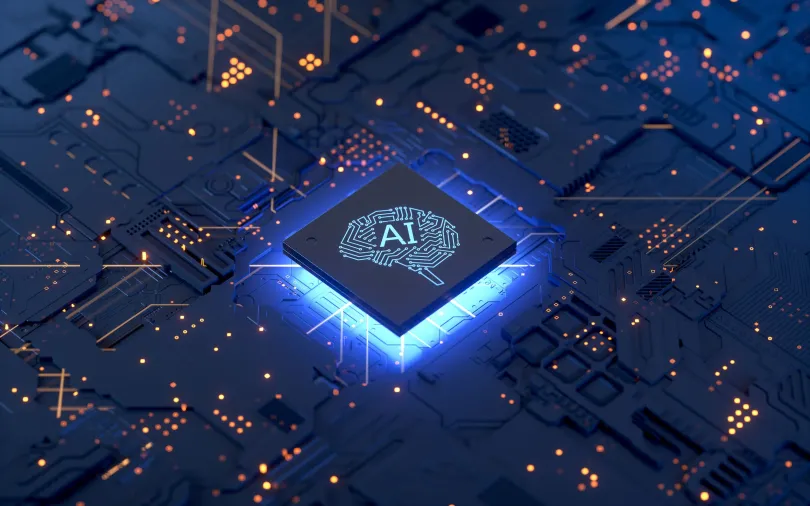

Workforce Evolution in the Age of AI: How AI will Impact the Workforce
Performance Optimization, Human Capital Analytics & The Workforce of the Future, Artificial IntelligenceAs AI continues to rapidly change the world, Public Sector leaders are evaluating and beginning to integrate AI to improve their mission outcomes and efficiency. AI can undeniably help the government achieve more with less, as Public Sector leaders continue to face increasing demands to deliver improved service with smaller budgets.
Leaders should closely consider the impact AI has on the workforce and how to help improve AI adoption, mitigate risk, and improve employee experience and impact. Below, we’ve identified our perspectives on how leaders can plan for, acquire, develop, retain, and transition talent as the workforce evolves in the age of AI.
As AI becomes more prominent in government organizations, it exacerbates the need to focus on people and human skills in evolving the workforce.

-

Introduction to Workforce Evolution in the Age of AI
-

Plan: Planning for Human Capabilities
As AI increasingly automates tasks traditionally performed by humans, employees will have more time to spend on strategic, creative, and value-added activities. Workforce planners should understand which tasks can be automated by AI and which associated skills are no longer required by humans, freeing capacity for people to do other work. Leaders and workforce planners must adapt to these shifts as they plan for the workforce of the future.
-

Acquire: Emphasizing Purpose and Impact
When recruiting top-tier AI talent for the federal government, agencies should emphasize the mission-driven culture and public service of their organization. Given the competitive nature of AI talent recruitment, the federal government should leverage its unique position to offer opportunities that combine cutting-edge technology with impactful, large-scale societal contributions. This includes illuminating the true and impactful value of government service to our nation.
-

Develop: Accelerating Human-AI Teaming and Human Capabilities
AI will require the human workforce to adjust to new ways of working. Leaders should consider AI as employees’ assistants, improving the speed at which work can be accomplished. Therefore, it will be critical to give the workforce a baseline understanding of AI and how it can augment work. Moreover, leaders can accelerate the impact of AI by training employees on human-AI teaming to enhance decision-making and increase efficiency and productivity.
As AI continues to take on the work that humans traditionally performed, there will also be a significant shift from a focus on cultivating technical skills to the need to scale human capabilities—the skills that AI can’t provide, such as leadership, problem-solving, curiosity, and empathy. These human capabilities will drive culture and innovation, ultimately improving mission outcomes.
-

Retain: Maintaining a Human-Centric Culture
Maintaining a focus on human-centric values and ethics as AI technologies continue to scale will help retain employees. As much as possible, leaders should involve employees in the AI implementation process by encouraging their input on how AI can be used to improve their work and the organization’s processes. Leaders should continue to reinforce that AI is used to augment—not replace—human capabilities and should continue promoting a culture of collaboration and empathy.
-

Transition: Preserving and Promoting Culture
Transition points in a person’s career can be emotional and difficult, whether they be related to life events, organizational transformations, or retirement/departure. An organization’s approach to transition is a true indication of the organization’s culture and its commitment to its people. Providing thoughtful support and empathy during the phases of a person’s career will reinforce the human-centric culture that is imperative in an AI-enabled organization. While AI can certainly complement many transitional activities, it should not replace the critical leadership and person-to-person interactions that are vital to the wellness of employees.


Ashley Jung
Vice President, Human Capital SolutionsAshley Jung is the vice president of human capital solutions at LMI, where she directs digital transformation strategies for federal customers. With a diverse background encompassing military service, consulting, and entrepreneurship, she began her notable career at the United States Military Academy, earning significant accolades in academics and athletics.


Ryan Wempe
Practice Area LeadRyan Wempe supports LMI’s Human Capital Solutions leadership group as the practice area lead for human capital strategy and planning. Ryan has nearly 20 years of leadership experience spanning intelligence operations in the Department of Defense, data and analytics at a Fortune 100 firm, and consulting in the public sector.



